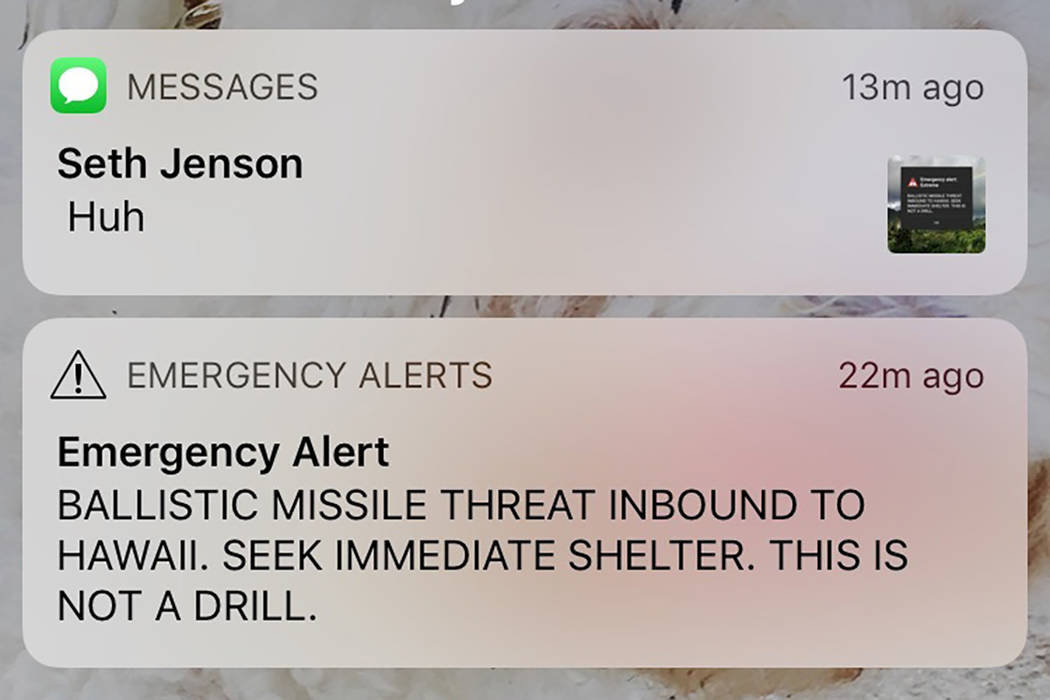Hawaii missile alert prompts resignation, firing of officials
HONOLULU — Hawaii’s emergency management leader has resigned and a state employee who sent an alert falsely warning of an incoming ballistic missile has been fired, officials said Tuesday, after the mistake caused widespread panic earlier this month.
Hawaii Emergency Management Agency Administrator Vern Miyagi stepped down Tuesday, state Adjutant General Maj. Gen. Joe Logan said. A second agency worker quit before disciplinary action was taken and another was being suspended without pay, Logan said in announcing results of an internal investigation.
The fallout came the same day the Federal Communications Commission revealed that the worker who pushed out the alert thought an actual attack was imminent. It was the first indication the Jan. 13 alert was purposely sent, adding another level of confusion to the misstep that left residents and tourists believing their lives were about to end.
The state emergency agency worker believed the attack was real because of a mistake in how the drill was initiated during a shift change, the FCC said in a report.
There was no requirement to double-check with a colleague or get a supervisor’s approval before sending the blast to cellphones, TV and radio stations statewide, the agency said.
“There were no procedures in place to prevent a single person from mistakenly sending a missile alert” in Hawaii, said James Wiley, a cybersecurity and communications reliability staffer at the FCC.
Compounding the problem was that the agency lacked any preparation in how to correct the false alert. The federal agency, which regulates the nation’s airwaves and sets standards for such emergency alerts, criticized the state’s delay in correcting it.
In addition, software at Hawaii’s emergency agency used the same prompts for both test and actual alerts, and it generally used prepared text that made it easy for a staffer to click through the alerting process without focusing enough on the text of the warning that would be sent.
The worker who filed the false alert has refused to cooperate with state or federal investigations beyond providing a written statement. He has been reassigned within the Hawaii emergency management division and no longer has access to the alert system.
The employee heard a recorded message that began by saying “exercise, exercise, exercise” — the script for a drill, the FCC said. Then the recording used language that is typically used for a real threat, not a drill: “this is not a drill.” The recording ended by saying “exercise, exercise, exercise.”
He did not hear the “exercise, exercise, exercise” part of the message and believed the threat was real, according to the employee’s statement. He responded by sending an alert.
The FCC said the state Emergency Management Agency has already taken steps to try to avoid a repeat of the false alert, requiring more supervision of drills and alert and test-alert transmissions. It has created a correction template for false alerts and has stopped ballistic missile defense drills until its own investigation is done.

















